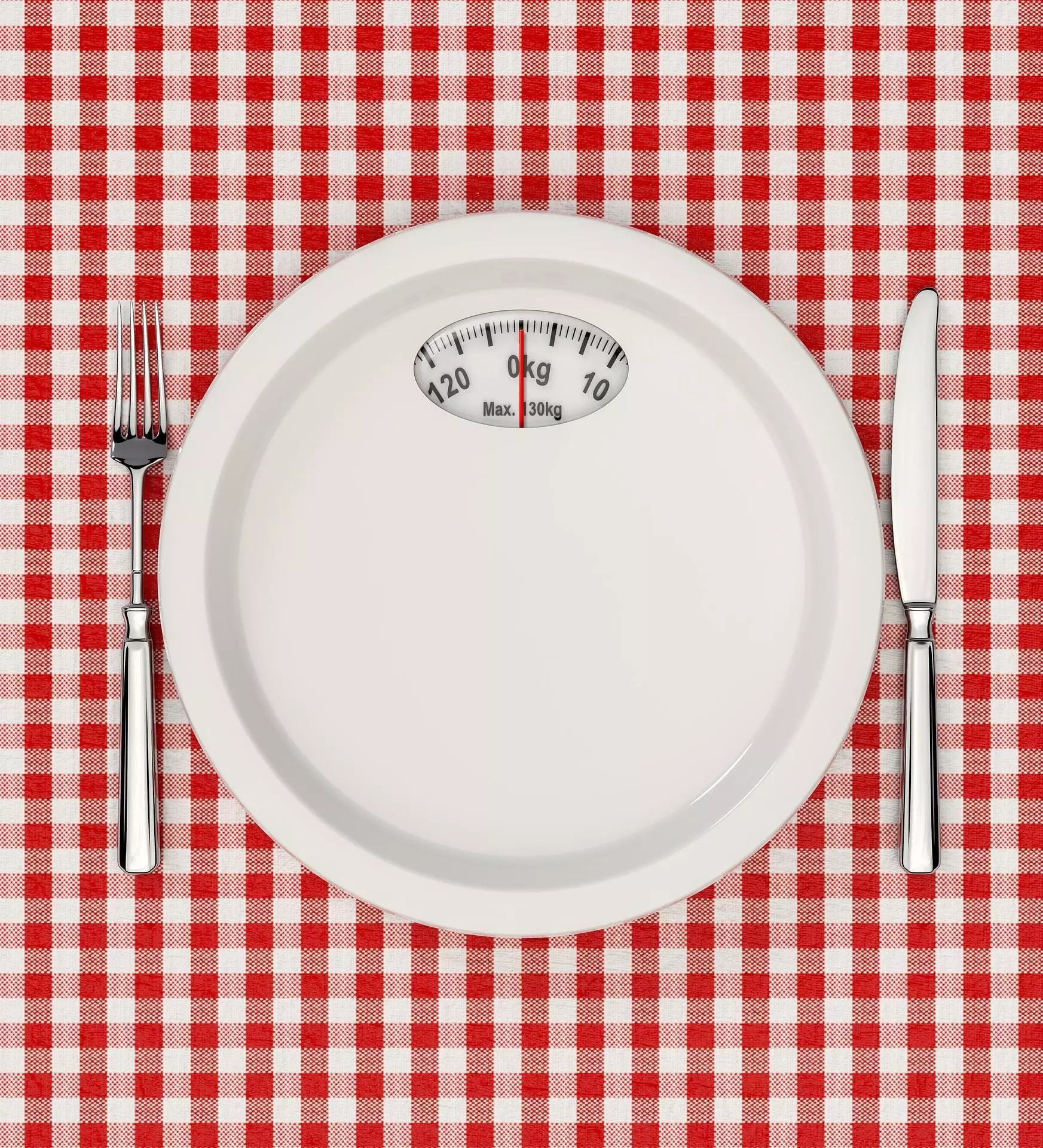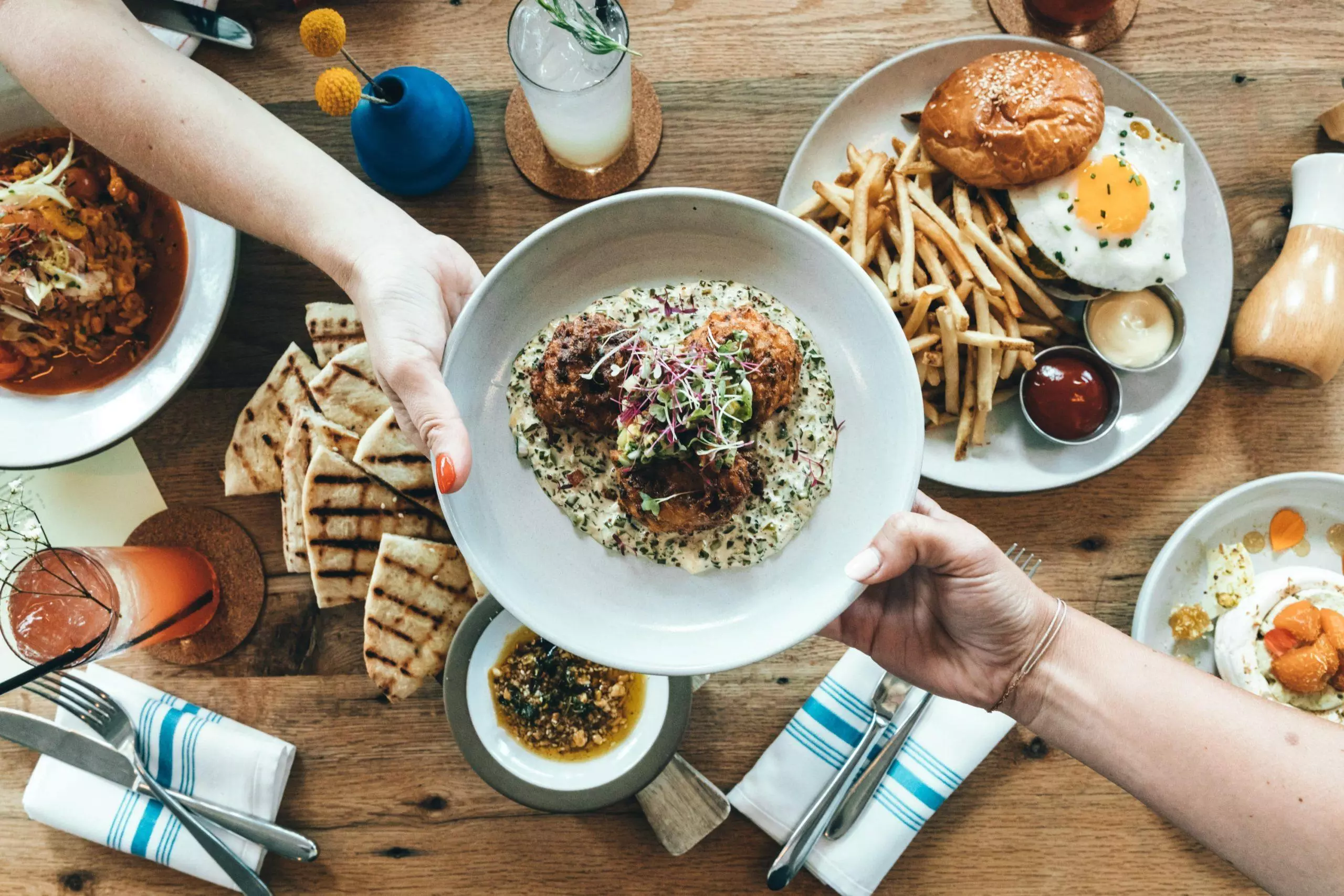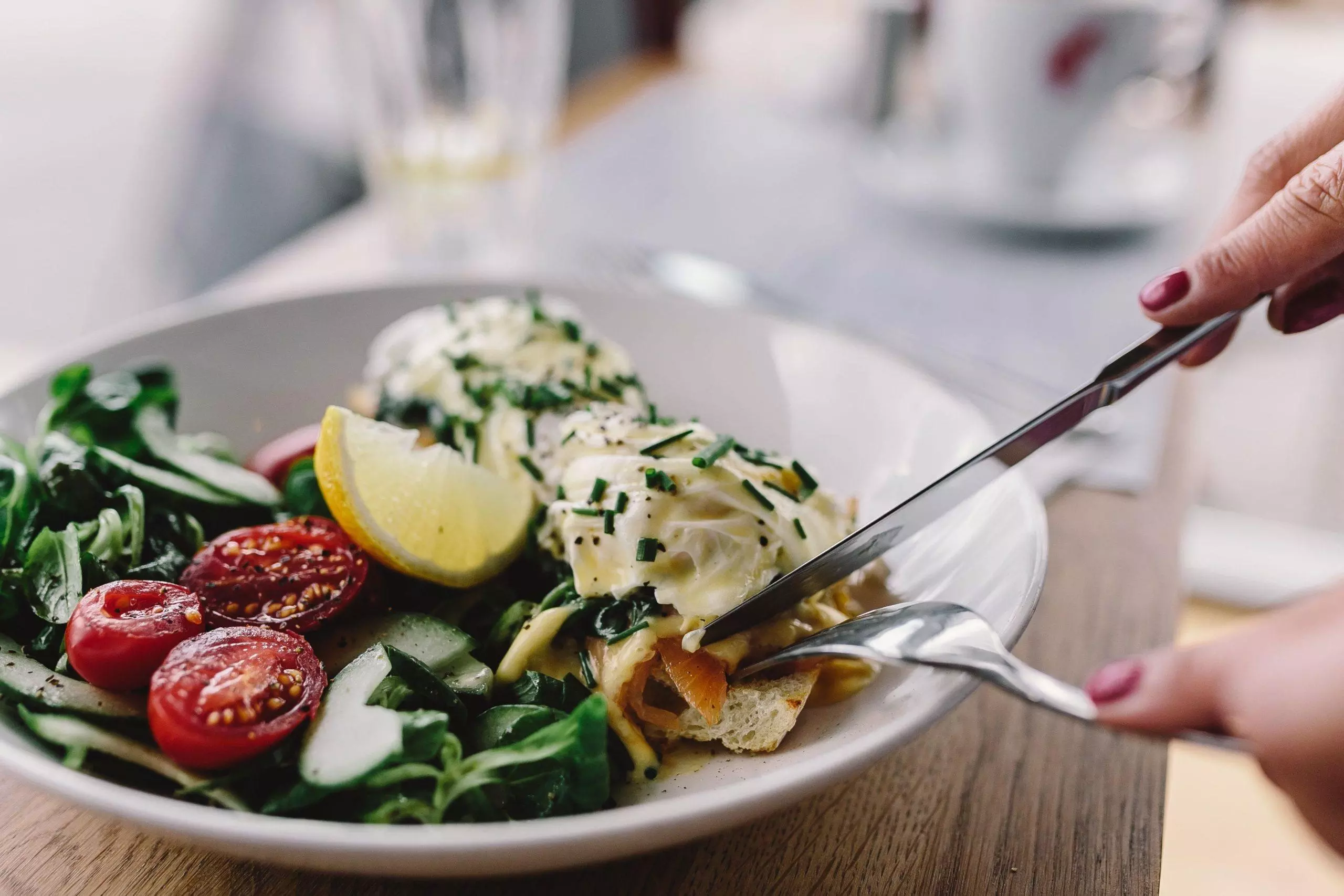This post contains affiliate links from which I may receive a small commission, at no extra cost to you. In no way does this affect my opinion or the information I provide on the product. Please read my disclaimer for more info.
Do you spend your day just waiting for the next meal?
Do you think about food all the time?
Do you constantly wonder if you are eating too much, or if your food is too calorie-dense?
Do you get excited when you think about what you’re going to eat throughout the day?
These could all be signs that you have an obsession with food. Don’t worry, food obsession is actually pretty common, and I’m going to give you some ways to get out of it.

What is an obsession with food?
It’s totally fine to enjoy eating and to look forward to having certain foods.
But when food is overwhelmingly present in your life in ways you can’t escape, when you start feeling addicted to food or start fixating on what certain foods will do to your body, you may have an obsession with food.
This can manifest in different ways, such as spending too much time thinking about food and wanting to eat/looking forward to eating all day long, or it can look like obsessing over which foods are good or bad, and feeling guilty after eating the foods deemed as bad.
In short, if food occupies your thoughts constantly, you may have an obsession with food.

Why are you obsessed with food?
In most cases, if you are obsessed with food, it’s because you’ve been restricting your eating in some way.
I’m sure you can look back on your past and think of a time when you weren’t allowed to have a certain food, and this only made you crave it more.
If you prevent a child from eating cookies, chances are they will often think about having cookies, ask for cookies, and wolf down a ton of cookies when they’re finally allowed to have them. If cookies had been available to them regularly, they wouldn’t be seeing them as something so special and probably wouldn’t be obsessed with them in the same way.
On a more extreme note, a study [1] actually demonstrated that drastically restricting your food intake lead to food obsession.
During WWII, 36 men took part in a nearly yearlong experiment on the psychological and physiological effects of starvation. During 6 months, they ate a semi-starvation diet of 1,570 calories a day and continued to be physically active in the lab. Beyond the drastic physical effects of the experiment, the psychological effects were dramatic.
Being food-deprived made the men obsessed with food. They would constantly talk, dream, and fantasize about food. After a certain period, they were allowed to eat without restriction, which led to extreme overeating in many participants, despite having been warned against it.
Even if you don’t go as far as starving yourself, if you are constantly policing your food intake and restricting how much you eat, it could be the cause of your obsession with food.

How to end your obsession with food.
Now that you know what a food obsession is and why you suffer from it, here are some ways to finally get rid of it.
Let go of your food restrictions.
The most important thing to do is to let go of your restrictions and regulations regarding food, and to give yourself permission to eat.
Now this may seem scary at first— surely if you’re allowed to eat anything you want then you’ll only eat junk food, right?
Well, for a brief period, you might.
If you’ve been banning certain foods from your plate for a long time and you’re suddenly allowed to have them, you’ll certainly binge on them at first. However, while having ice-cream and chocolate dinners for the rest of your life might seem appealing now, it probably won’t after you’ve had it for a few nights in a row.
Like the cookie example I mentioned above, when you’re allowed to have a certain food whenever you like, the novelty factor will wear off, and you’ll start craving it less. This is a natural phenomenon called habituation [2].
It’s also crucial to get out of the all-or-nothing mentality, which will push you to eat an entire bag of chips after just having a few because “I’ve ruined my diet now anyway, I might as well finish them”. You need to allow yourself to eat the foods you want without guilt so that you don’t feel the need to binge on them later on.

Turn to a more mindful way of eating.
While you move away from restrictive eating, shift towards a more mindful way of eating. Mindful eating is a technique used to regain control over your eating habits. It’s based on mindfulness, a form of meditation.
It means being aware of what you eat, and eating consciously in a healthy and balanced way in order to rediscover taste, flavor, and pleasure. The goal of mindful eating is to create a connexion between body and mind while you enjoy your food.
This can enable you to listen to what your body needs, to know when you are hungry and when you are full. Mindful eating involves listening to your hunger cues. It means eating slowly, taking the time to chew, and noticing the different textures and flavors of your food.
Eating should be done without any distractions, focused on appreciating your food. Read this article for more information on how to practice mindful eating.
Find comfort in other things than food.
It’s totally normal to turn to food when you need to be comforted sometimes. This is a thing even babies do.
However, food shouldn’t be the only way to cope with your emotions. The best thing to do would be to work on changing the things that are causing this discomfort in the first place.
But if you can’t, you should find other ways than food to deal with it. It can be anything— watching funny movies, going for a walk, dancing to music you love, engaging in sports, chatting with a friend…
There are so many other things than food to be “obsessed” with! It’s also important to acknowledge and accept your feelings and emotions— sometimes you turn to comfort food to avoid dealing with them at all.
But what if I don’t restrict and am still food-obsessed?
First of all, you might be restricting without even realizing it. If you count your calories, track your macros, or have salads to compensate for big brunches (even if you’re starving!), you are participating in some form of restriction.
You might also be wanting to restrict your food intake, but end up “giving in” and having what you want anyway, all while feeling guilty for it. This counts as food restriction as well.
Another possibility might be that you have eaten highly-processed, calorie-dense foods your whole life, without ever eating healthy and balanced meals.
In this situation, you may see food and eating as a hobby or as a comforting routine, leading to your food obsession. I suggest learning the basics about nutrition, its impact on health, and how to create healthy and balanced meals without feeding into diet culture.
Once you acquire some general nutrition knowledge, you can start mindful and intuitive eating.

Food obsession in conclusion.
You may have a food obsession if food is overwhelmingly present in your life in ways you can’t escape, if you feel addicted to food, or if you feel like eating is constantly on your mind.
In order to end this obsession, you need to give yourself unconditional permission to eat. It’s important to get rid of your feelings of food guilt and ditch diet culture. Instead, turn to more mindful and intuitive eating. I highly suggest being accompanied by a nutrition professional while you navigate these issues so things can go as smoothly as possible.
-Lucie


Comments are closed.